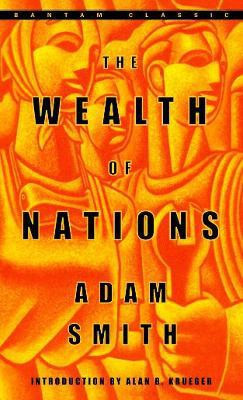The Wealth of Nations(English, Paperback, Smith Adam)
Quick Overview
Product Price Comparison
A book whose theory forms the fundamentals of classical economics, The Wealth of Nations is the culmination of ten yearsŌĆÖ worth of hard work by the author, Adam Smith, and is a five-book series. Summary Of The Book The Wealth of Nations, first published in 1776, contains a pioneering insight into economics, the processes involved in building a nationŌĆÖs wealth, how commerce influenced the amelioration of a country, the basic functioning of a market economy, and many more such aspects of economics at the beginning of the Industrial Revolution. Having been published in the same year that AmericaŌĆÖs Declaration of Independence was signed, The Wealth of Nations had a fierce impact on the newly independent country and on EuropeŌĆÖs rising industrial bourgeoisie. Smith expresses his views on free trade and the counter-productive regulations applied to commerce. His radical take on the fact that a countryŌĆÖs wealth can only grow sustainably once an established trade of goods and services that it produces is underway, is still applicable in todayŌĆÖs market and it is now referred to as the gross national product. He also expresses his views on how beneficial the minimal involvement of the Government would be to the market economy. Written in an engaging manner interspersed cleverly with wit, Smith argues about the advantages of capitalism, as opposed to feudalism, and the division of labour. This edition of The Wealth of Nations offers a fresh and crisp take on the revolutionary and game-changing insights of Adam Smith. About Adam Smith Adam Smith, born in 1723 in Scotland, was a philosopher who was at the frontier of the emerging political economy. Smith authored The Theory of Moral Sentiments. Smith procured a degree in moral philosophy from the University of Glasgow, and later studied at the Balliol College at Oxford. After a teaching stint at the University of Glasgow, he travelled through Europe and interacted with several intellectuals who had a profound impact on him. He dedicated the next ten years of his life to creating The Wealth of Nations, and died in 1790 at the age of 67. He was one of the founding members of The Royal Society of Edinburgh, and is popularly considered as the Father of Modern Economics.


